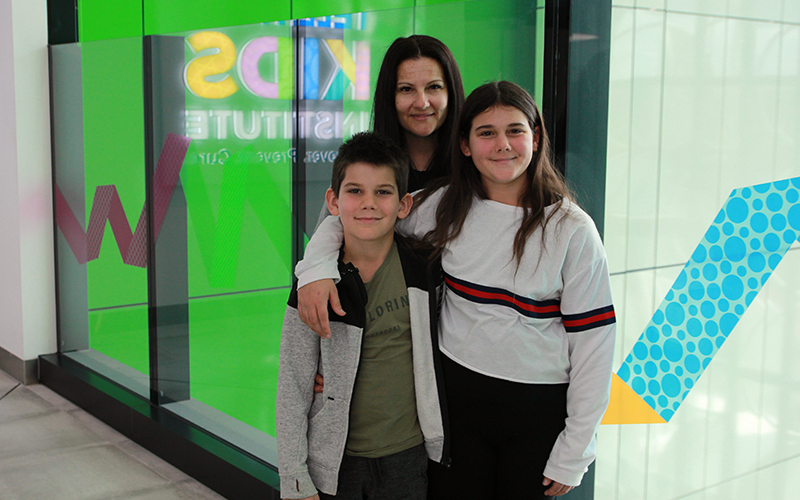Search
Showing results for "8"

News & Events
Taking part in Sore Throat Study a no-brainer for Perth familyWhen Ballajura mum Filomena saw a callout to families to participate in a simple sore throat study to combat Strep A infections, she didn’t think twice.
Research
Ancestral SARS-CoV-2, but not Omicron, replicates less efficiently in primary pediatric nasal epithelial cellsChildren typically experience more mild symptoms of Coronavirus Disease 2019 (COVID-19) when compared to adults. There is a strong body of evidence that children are also less susceptible to Severe Acute Respiratory Syndrome Coronavirus 2 (SARS-CoV-2) infection with the ancestral viral isolate.
Research
Identifying pediatric lung disease: A comparison of forced oscillation technique outcomesThese findings suggest the utility of specific FOT outcomes is dependent on the respiratory disease being assessed
Research
Bacterial Reservoirs in the Middle Ear of Otitis-prone Children Are Associated With Repeat Ventilation Tube InsertionPresence of bacterial otopathogen in the middle ear during ventilation tube insertion was a predictor of children at-risk of repeat ventilation tube insertion
Research
Feasibility of home-based urine collection in children under 5 years in the ORIGINS birth cohort study: mixed method protocol and sample completion resultsUrine is an attractive biospecimen for nutritional status and population health surveys. It is an excellent non-invasive alternative to blood for appropriate biomarkers in young children and is suitable for home-based collection, enabling representative collections across a population. However, the bulk of literature in this population is restricted to collection in primary care settings.
Research
Association of gestational age and growth measures at birth with infection-related admissions to hospital throughout childhoodChildren who were born with reduced gestational age, birthweight, and birth length have persistently increased rates of infection-related admissions to hospital until age 18 years
Research
Getting creative: Using art-based techniques to identify how arts organizations enhance young people’s well-beingMental health concerns present significant challenges for Australian youth. Arts organizations play a key role in promoting preventative mental health strate-gies through enhancing the social and emotional well-being (SEWB) of youth. However, little is known about how the arts promote SEWB and the processes and contexts through which this occurs.
Research
‘It’s been a lifelong thing for me’: parents’ experiences of facilitating a healthy lifestyle for their children with severe obesityFor parents and guardians, assisting children/adolescents with severe obesity to lose weight is often a key objective but a complex and difficult challenge. Our aim in this study was to explore parents' (and guardians') perspectives on the challenges they have faced in assisting their children/adolescents with severe obesity to lead a healthy lifestyle.

News & Events
Sharing attention for connection, communication and learningIn this new blog, Speech Pathologist Emma Corry looks at the importance of shared attention for connection, communication and learning.

A dramatic rise in food allergies over the past 20 years had Australian medical professionals scratching their heads, with three in every ten babies born each year developing food-related allergy or eczema.
